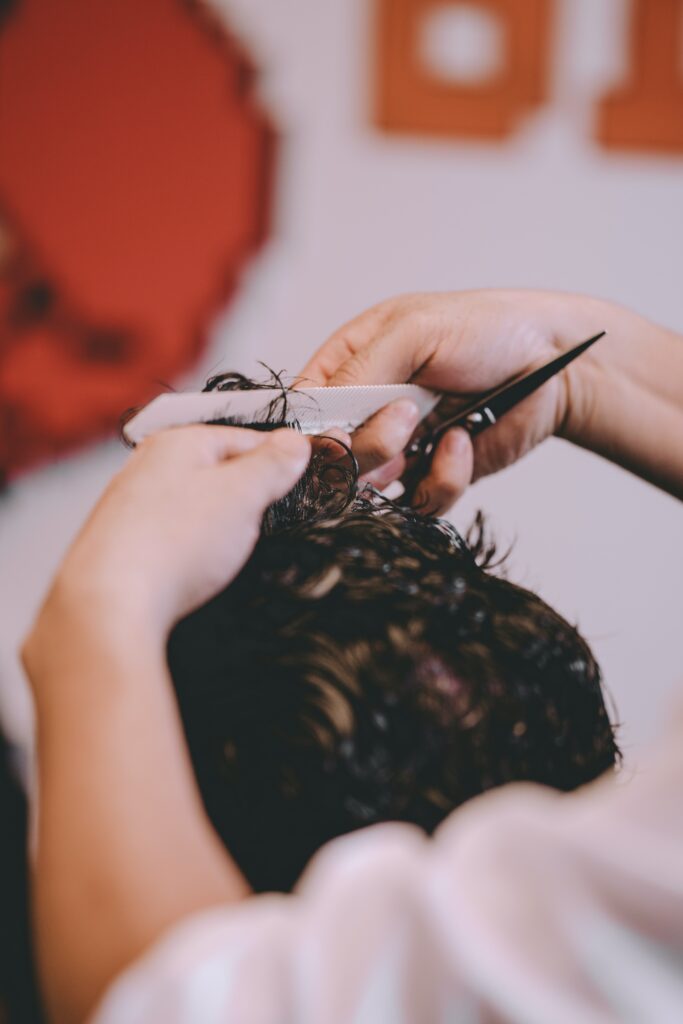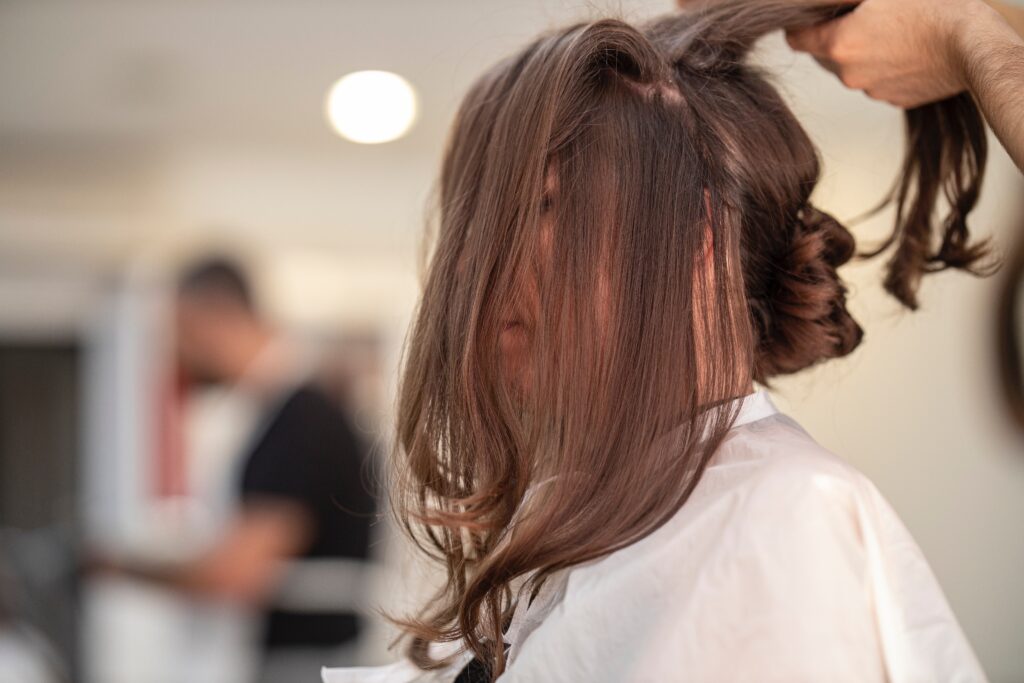Causes For Slow And Stalled Hair Growth

Hair growth is a natural process that occurs in cycles, with each strand of hair going through a growth phase, a resting phase, and a shedding phase. However, for some individuals, the process of hair growth may be slower than usual, or it may come to a complete halt, leaving them with thin, weak, or stalled hair growth.
This can be frustrating and worrisome, as healthy and luscious hair is often associated with youth, vitality, and self-confidence. In this blog, we will explore the causes for slow and stalled hair growth, shedding light on the culprits that may be preventing you from achieving the luxurious mane you desire.
Genetics:
Your genes play a significant role in determining the rate of your hair growth. If you have a family history of slow hair growth, you may be more likely to experience the same. Genetics can influence the size of your hair follicles, the thickness of your hair shaft, and the duration of your hair growth cycles, all of which can impact the speed of your hair growth.
While you cannot change your genetic makeup, understanding your family history can help you manage your expectations and take appropriate steps to care for your hair.
Hormonal Imbalances:
Hormones are chemical messengers in the body that regulate various physiological processes, including hair growth. An imbalance in hormones can disrupt the normal hair growth cycle and lead to slow or stalled hair growth.
Conditions such as polycystic ovary syndrome (PCOS), thyroid disorders, and hormonal imbalances related to pregnancy or menopause can all affect the rate of hair growth. Consulting with a healthcare provider and getting appropriate hormonal treatments or medications can help address the underlying hormonal imbalances and potentially improve your hair growth.
Nutritional Deficiencies:
Your diet plays a crucial role in supporting the health of your hair. Nutrients such as protein, iron, zinc, biotin, vitamins D and E, and omega-3 fatty acids are essential for promoting healthy hair growth. A deficiency in these nutrients can weaken your hair follicles and slow down hair growth.
Poor diet choices, crash dieting, certain medical conditions, and malabsorption issues can all contribute to nutritional deficiencies that may impact hair growth. Incorporating a well-balanced diet with plenty of fruits, vegetables, whole grains, lean proteins, and healthy fats can help provide your hair with the nutrients it needs to grow strong and healthy.
Scalp Conditions:
A healthy scalp is crucial for optimal hair growth. Conditions such as dandruff, scalp psoriasis, seborrheic dermatitis, and folliculitis can all affect the health of your scalp and disrupt the normal hair growth cycle.
These conditions can cause inflammation, itching, and flaking of the scalp, leading to weakened hair follicles and slow hair growth. Proper scalp hygiene, medicated shampoos, and prescription treatments can help manage these conditions and create a healthy environment for hair growth.
Styling and Hair Care Practices:
Over-styling, excessive use of heat styling tools, tight hairstyles, and harsh hair care products can all damage your hair and slow down its growth. Heat and chemical damage can weaken the hair shaft, making it prone to breakage and hindering its growth.
Tight hairstyles, such as braids, buns, and extensions, can cause tension on the hair shaft, leading to hair loss and slow hair growth. Using gentle hair care products, avoiding excessive heat styling, and opting for loose hairstyles can help protect your hair and promote healthy growth.

Medical Conditions and Medications:
Certain medical conditions and medications can also impact the rate of hair growth. Conditions such as alopecia areata, lupus, and trichotillomania can all cause hair loss or slow hair growth. Additionally, certain medications, such as chemotherapy drugs, can also affect the rate of hair growth by disrupting the normal hair growth cycle.
If you suspect that a medical condition or medication may be contributing to your slow or stalled hair growth, it’s essential to consult with a healthcare provider for proper diagnosis and management.
Stress:
Chronic stress can take a toll on your overall health, including the health of your hair. When your body is under prolonged stress, it can disrupt the normal hair growth cycle, leading to slow or stalled hair growth. High levels of stress can also lead to hair shedding, a condition known as telogen effluvium. Practicing stress management techniques, such as exercise, meditation, and adequate sleep, can help reduce stress levels and promote healthy hair growth.
Age:
As we age, our hair growth rate naturally slows down. The hair follicles shrink, and the production of new hair cells decreases, resulting in thinner and slower-growing hair. This is a normal part of the aging process, and while you cannot reverse the effects of aging on hair growth, taking good care of your hair and scalp can help maintain its health and vitality.
Environmental Factors:
Environmental factors, such as pollution, UV radiation, and harsh weather conditions, can also impact the rate of hair growth. Pollution and UV radiation can damage the hair shaft and scalp, leading to weakened hair follicles and slow growth.
Extreme weather conditions, such as excessive heat or cold, can also stress the hair and scalp, affecting the normal hair growth cycle. Protecting your hair from environmental factors by wearing hats, using protective hair products, and avoiding exposure to pollution and UV radiation can help promote healthy hair growth.
Slow and stalled hair growth can be caused by a variety of factors, including genetics, hormonal imbalances, nutritional deficiencies, scalp conditions, styling and hair care practices, medical conditions and medications, stress, age, and environmental factors.
Identifying and addressing the underlying causes can help improve the rate of hair growth and promote healthy, luscious locks. If you are concerned about your hair growth, it’s important to consult with a healthcare provider or a dermatologist for proper evaluation and personalized recommendations.
Remember, healthy hair requires consistent care, a well-balanced diet, and a healthy lifestyle. With the right approach, you can enhance your hair growth and achieve the gorgeous locks you’ve always desired.




